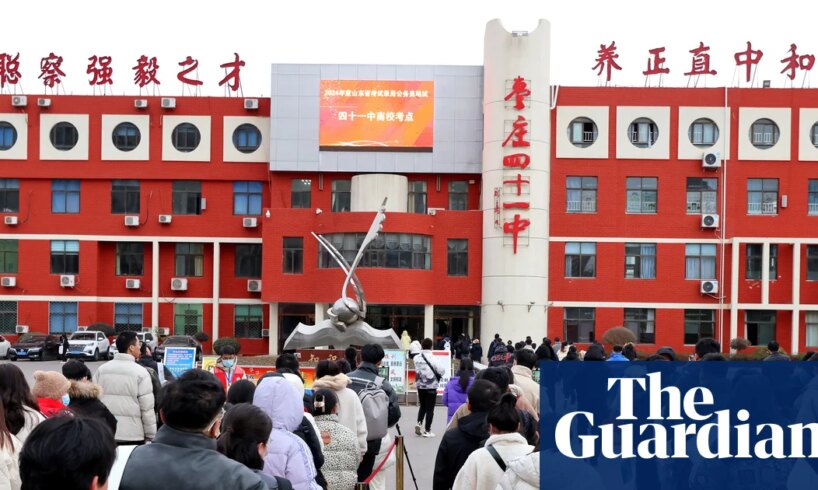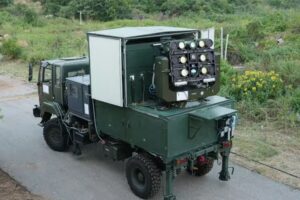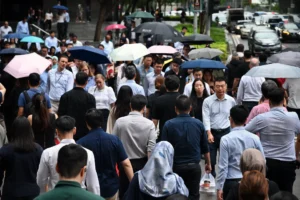
A record number of people are set to take China’s notoriously gruelling national civil service exam this weekend, reflecting the increasing desire of Chinese workers to find employment in the public rather than private sector.
Around 3.7 million people have registered for the tests on Saturday and Sunday, which will be the first since the government increased the age limit for certain positions. The age limit for general candidates has increased from 35 to 38, while the age limit for those with postgraduate degrees has been raised from 40 to 43.
The millions of applicants will be competing for 38,100 civil service vacancies across the country, the equivalent of an average of 97 people per job.
Some jobs are particularly in demand. According to data published in Chinese media, the vacancy that received the most applicants was an immigration officer role in Ruili, a city in south-west Yunnan province that borders Myanmar. For the one job, 6,470 people have been approved to apply.
Beijing announced in October that the age limit for the civil service exams would be increased in line with recent increases to China’s retirement age.
China’s ageing population and dwindling pension budget has forced a reckoning with its relatively low retirement ages. Last year, the government approved plans to gradually increase the retirement age for the first time since the 1950s. The statutory retirement age for women will increase from 50 to 55 for those in blue-collar jobs, and from 55 to 58 for women in white-collar jobs. For men, the retirement age will increase from 60 to 63.
Although public sector jobs generally have lower wages – and in recent years some debt-ridden local authorities have struggled to pay wages at all – the jobs are increasingly coveted for their security in an increasingly challenging economy. Harking back to the Maoist era, civil services jobs are known as providing the “iron rice bowl” – an idiom that refers to having a job for life.
In China’s years of reform and opening up, plunging into the risks and rewards of commercial enterprises was known as xiahai, or “jumping into the sea”. Now people talk of shangan, or “landing ashore”, to describe successfully passing the exams into the stable public sector.
“The occupational structure of China’s job market has shifted markedly over the last decade or so away [from] high-pay, high-skill jobs in [manufacturing] and construction towards low-pay, low-skill in the gig and informal sectors. In the latter, benefits and pensions tend to be absent or uncertain, and formal contractual obligations are weak,” said George Magnus, a research associate at Oxford University’s China Centre. “With 12 million grads coming on to the market each year … the preference for secure government sector jobs isn’t hard to understand.”
China’s unemployment rate is 5.1% for the general workforce, and 17.3% for 16- to 24-year-olds excluding college students. In 2023 the government temporarily stopped publishing youth unemployment figures, which had reached a record 21.3%, resuming publication after a few months with a new methodology that excludes students.
The trade war and weak consumer demand after the Covid-19 pandemic have battered China’s economy, with many young people choosing to “lie flat”, i.e. do nothing, rather than seek employment in jobs which they feel do not match their level of education or provide sufficient benefits. And next year, China is bracing itself for a record 12.7 million graduates.
The raising of the age limit for the exams has generally been welcomed, especially as it could help workers avoid the well-documented “curse of 35”, where companies refuse to higher people past their mid-30s.
But some have also spoken of the challenges of juggling exam prep with looking after young families, a balance that fresh graduates are less likely to have to worry about.
The civil service exam is notoriously gruelling, with questions on law, physics, biology, politics and reasoning. Since last year, there has also been a section on political theory, which “focuses on candidates’ ability to analyse and solve problems using the Party’s innovative theories,” according to an official announcement. Questions from last year covered Xi Jinping’s major speeches of the past 12 months and Communist party plenums.
One 35-year-old mother shared her daily routine on Xiaohongshu as she prepared for this year’s tests. It involved pre-dawn starts and cramming in study sessions around childcare, with the result being four to five hours of sleep a night. “Days are for Powerpoint presentations, nights are for formulas and picture books, waking up at 4am is the time to prepare for the exam”.
Additional research by Lillian Yang





